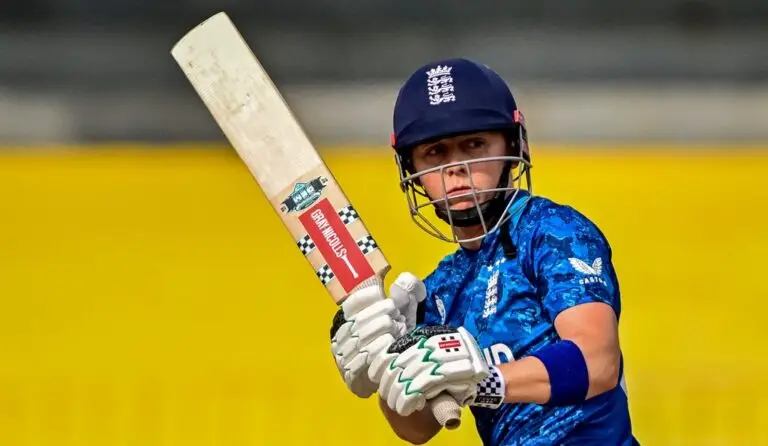The Women’s World Cup delivered yet another late-stage thriller as England edged past India in a gripping contest that ended with just four runs separating heartbreak from glory. On a humid evening in Indore, it wasn’t just cricket on show—it was the psychological theatre of pressure, poise, and missteps.
England, armed with a steely resolve and a century from veteran Heather Knight, carved out 288 for 8 on a surface that offered little mercy to bowlers. Knight, out of form in previous outings, orchestrated a resounding return to the big stage with a polished 109 from 91 balls. Her innings was more than a personal comeback—it became the axis on which England’s innings rotated.
India, for large stretches, looked in command. A calculated chase built steadily with Smriti Mandhana’s strokeplay anchoring the innings. At 227 for 3 in the 40th over, needing just 62 from the last 60 balls, the hosts seemed to have finally found the perfect moment to snap a run of close losses.
But pressure has a peculiar way of distorting even the most solid of pursuits.
Mandhana’s decision to charge spinner Linsey Smith ended in disaster as she lofted one straight into the hands of long-off. It was the first crack. What followed was a slow-motion unraveling. India’s middle order, often reliable, was sucked into a vortex of dot balls, misjudged singles, and ambitious shots that never made the boundary. Deepti Sharma’s dismissal attempting a slog sweep underlined a lack of composure when it mattered most.
The final five overs were a study in contrasts—England, previously sloppy in the field, turned into a wall. India, until then fluent, became frantic. Richa Ghosh’s attempt to go big ended in the deep. The tail offered little resistance. The last ball needed a boundary. It yielded a single.
Knight, calm as ever, reflected on the turnaround. “We knew we were short—maybe 15, 20 runs—but defending is about heart. These are the games that build teams.”
England now join Australia and South Africa in the semi-finals, comfortably perched near the top of the table with nine points and two games to spare. For India, the picture is stark: another loss, their third in succession, sets up a knockout clash against New Zealand—winner progresses, loser exits.
Captain Harmanpreet Kaur, visibly shaken, didn’t mince words. “We’ve been here before. Ahead, then behind, and then out. It hurts.”
With tournament momentum now firmly in England’s corner, and India’s campaign hanging by a thread, the Women’s World Cup narrative just took a sharp turn—from domination to desperation, and from expectation to survival.






